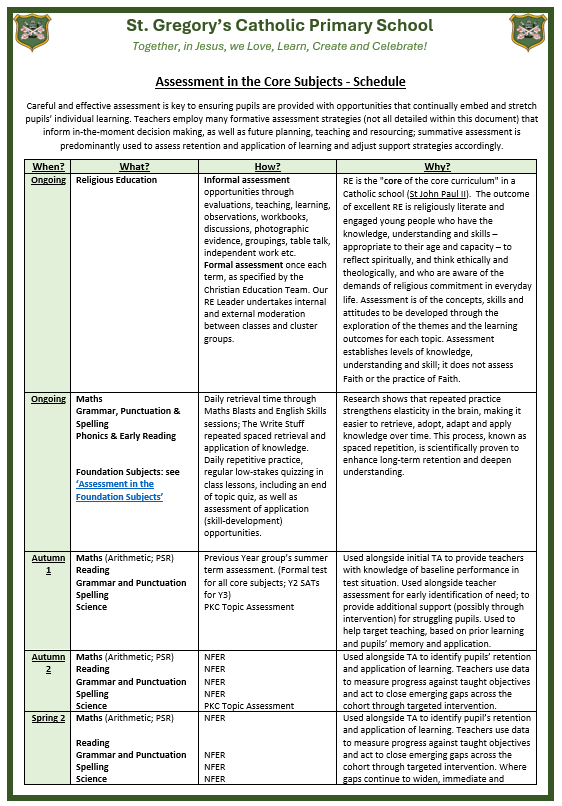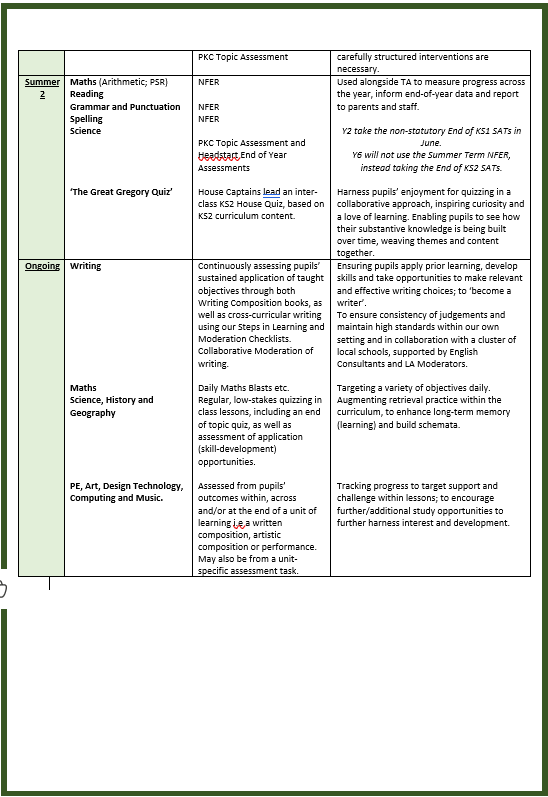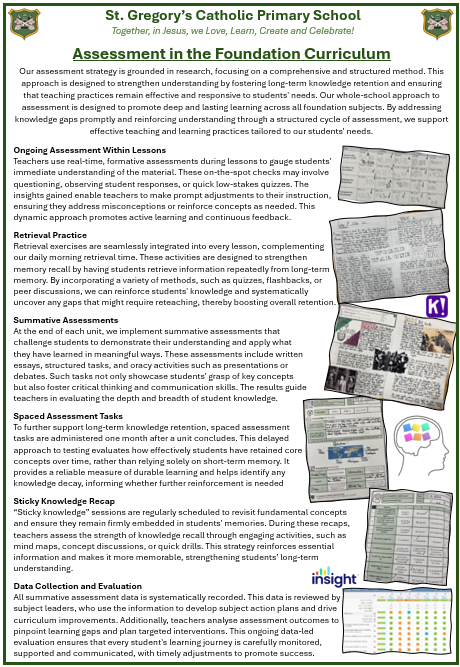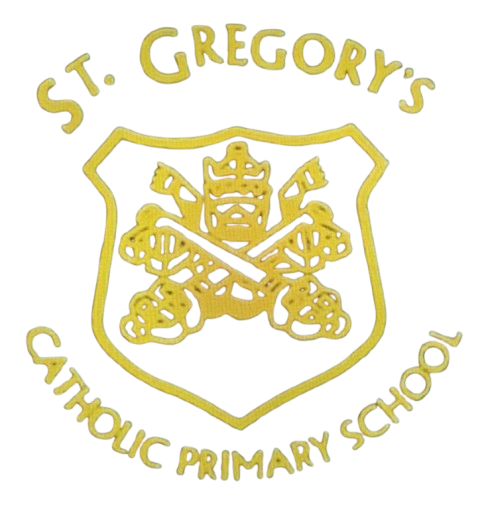Assessment
At St. Gregory's, we view assessment as an integral part of a continuous and informative cycle that underpins effective teaching and learning. By actively involving children in the assessment process, we foster ownership of their learning, enabling real-time adaptations that enhance their progress. Our approach to assessment in the foundation subjects, as outlined in the linked PDF, details how we track, monitor, and support children's progress while ensuring a deep and lasting retention of knowledge over time.
We are mindful also of the workload implications of written marking balanced with the research surrounding effective feedback and its impact on pupil outcomes. We have considered key recommendations from expert organisations including EEF: redirecting or refocusing either the teacher or learner actions to achieve a goal; to be specific, accurate and clear; to encourage and support further effort; to be selective to enhance meaning; to provide specific guidance on how to improve. Within these principles, our aim is to make use of the good practice approaches outlined by the EEF toolkit among other research findings; to ensure that children are provided with timely and purposeful feedback that furthers their learning, so that teachers are able to gather feedback and assessments that enable them to adjust their teaching both within and across a sequence of lessons. Also at the heart of our policy is the gradual and phased development of pupil’s meta-cognition and self-regulation. When thinking is deep, learning is much more likely to be stored in long-term memory, available to be recalled at will; as Daniel Willingham says, ‘memory is the residue of thought.’
Please see below:
- St. Gregory's Assessment in the Core Subjects Overview
- St. Gregory's Assessment in the Foundation Subjects Overview
- Example End-of-Unit Assessment in Foundation Subjects
- Example Spaced Assessment in Foundation Subjects



